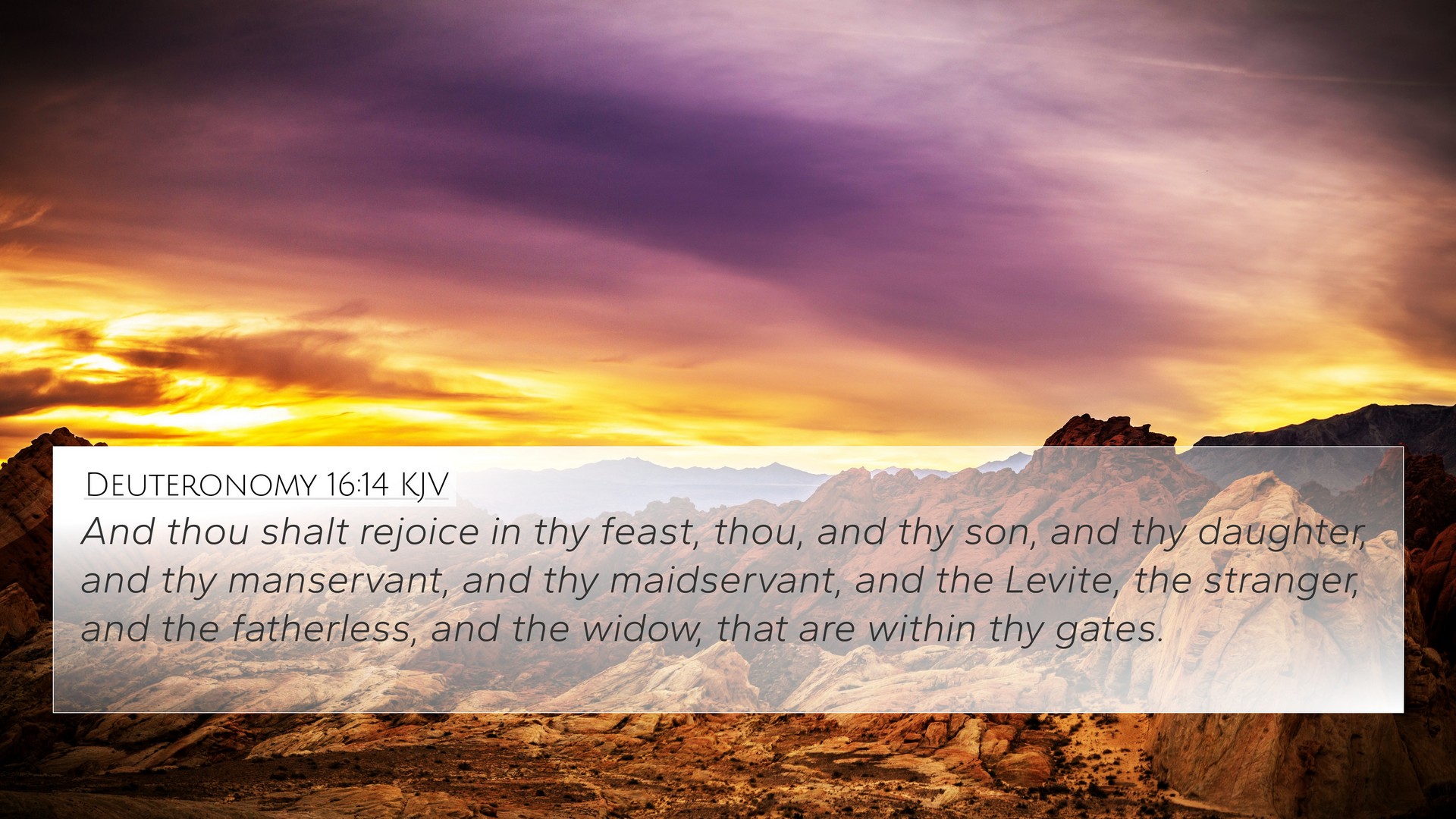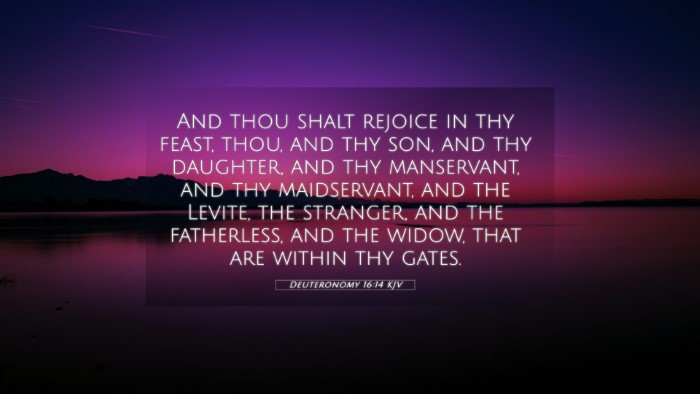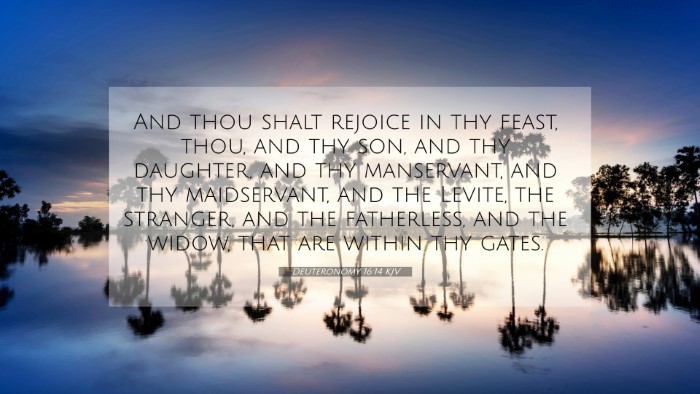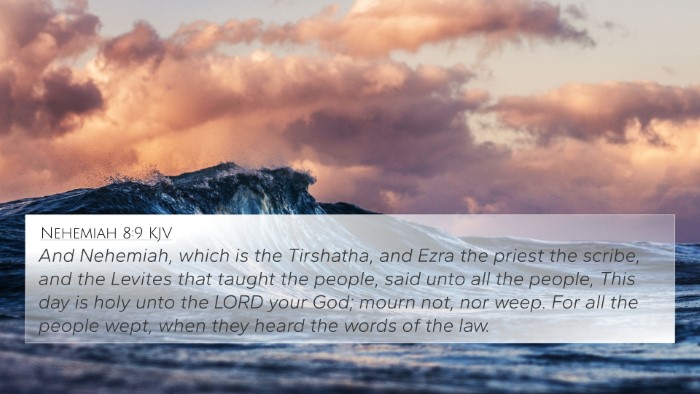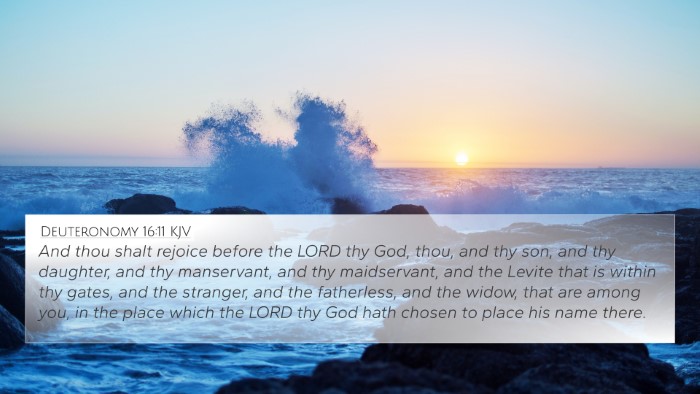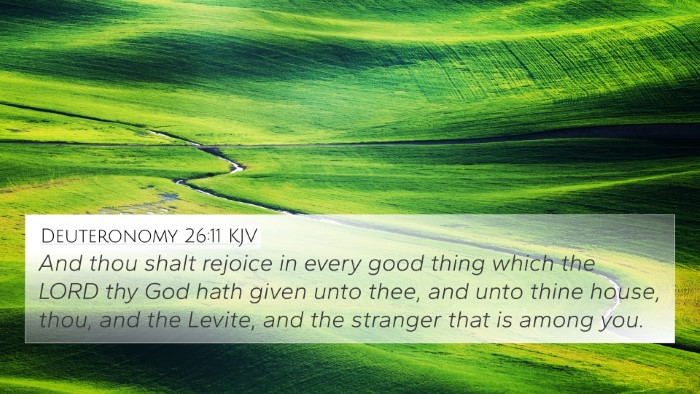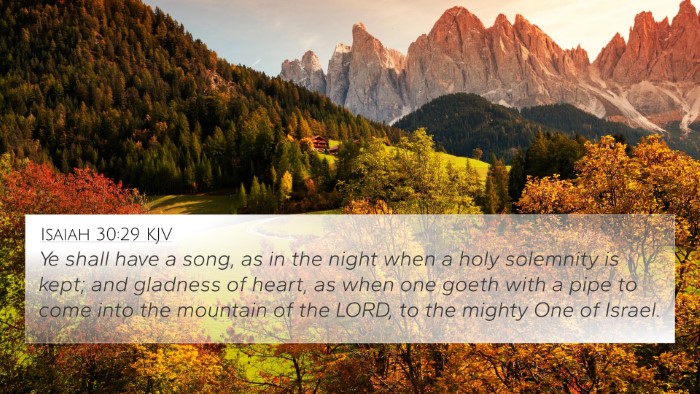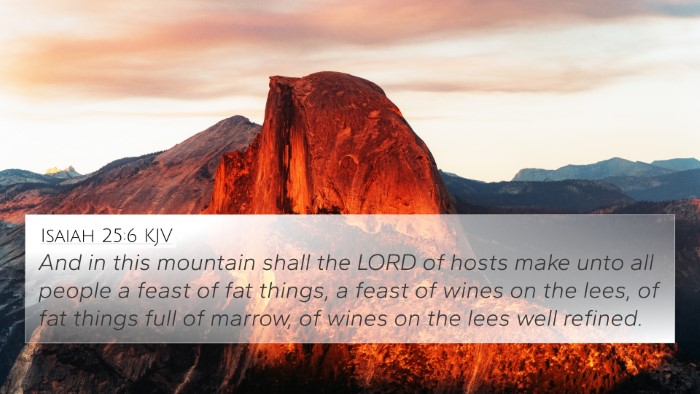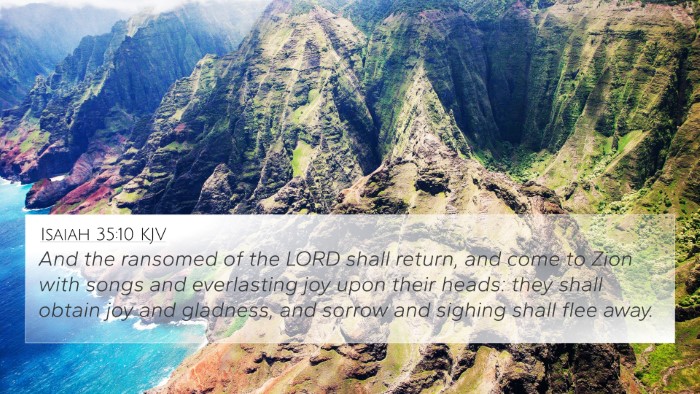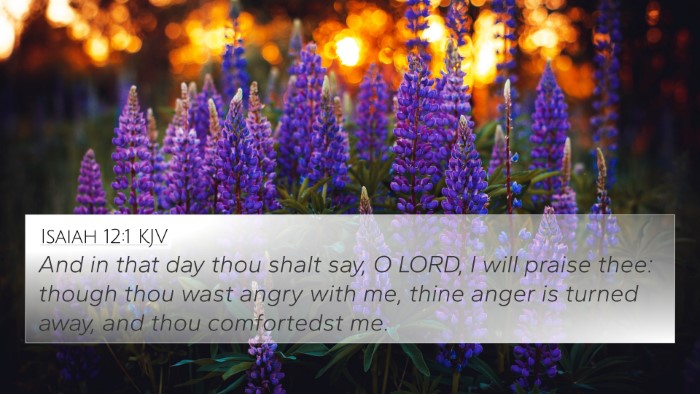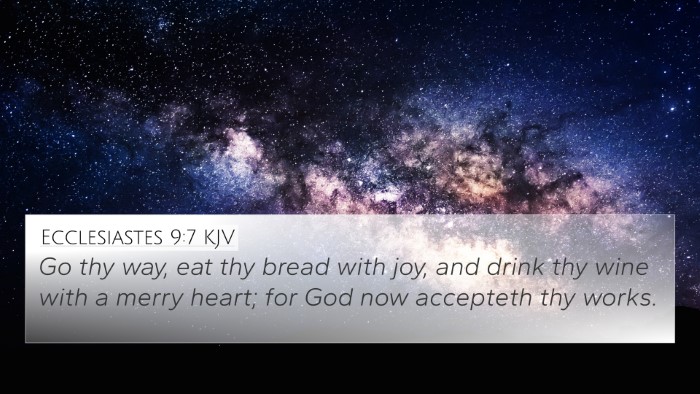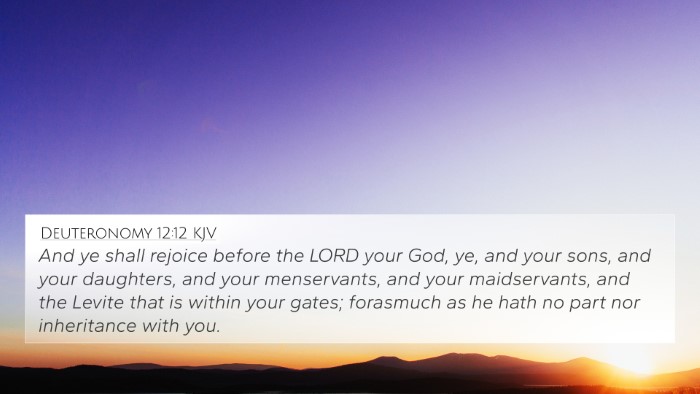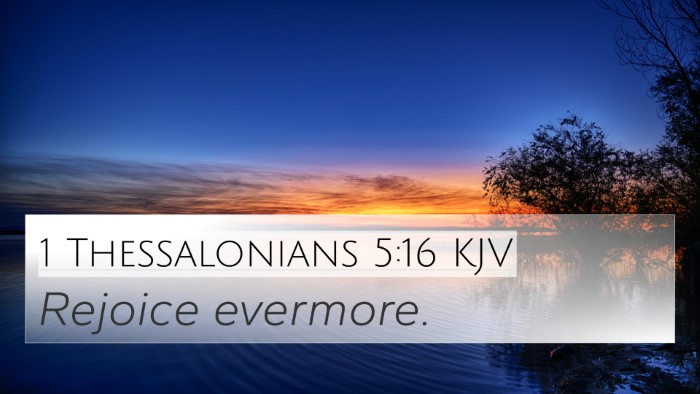Understanding Deuteronomy 16:14
Deuteronomy 16:14 states, "And you shall rejoice in your feast, you and your son and your daughter, your male servant and your female servant, and the Levite, the stranger, and the fatherless and the widow who are within your gates; for he shall be in the midst of you." This verse emphasizes the importance of joy during the celebration of the Feast of Tabernacles, calling for inclusion and shared rejoicing.
Summary of Meaning
The command to rejoice highlights a central aspect of Israel's religious festivals: community and gratitude. Each group mentioned—family members, servants, Levites, and marginalized individuals—are to participate in the celebrations, which reflects God’s inclusivity. The act of rejoicing is not merely a personal pleasure but a communal expression of faith and gratitude toward God.
Commentary Insights
- Matthew Henry: Henry notes that the command to rejoice underscores the necessity of joy in worship. He highlights that festivals serve to remind the people of God's blessings and the community's duties to include all, particularly those who might be overlooked.
- Albert Barnes: Barnes expounds on the social dimensions of the Feast. He points out that the act of joy must be shared and reflects divine generosity. He stresses that those who feel excluded should be drawn in as part of the covenant community.
- Adam Clarke: Clarke elaborates on the theological significance of joy within community worship. He discusses how such gatherings solidify bonds among community members and foster an environment of sharing and mutual support.
Bible Verse Cross-References
- Leviticus 23:40: Pertains to the Feast of Tabernacles and emphasizes rejoicing and gathering.
- Nehemiah 8:10: “For the joy of the Lord is your strength,” encouraging celebration during significant religious events.
- Luke 14:13-14: Jesus teaches about inviting those who cannot repay, echoing the inclusivity made in Deuteronomy 16:14.
- 2 Corinthians 9:7: Highlights cheerful giving, resonating with the joyous spirit of communal feasts.
- Psalm 126:3: “The Lord has done great things for us, and we are glad,” capturing the essence of joyful remembrance.
- Romans 15:32: Speaks to the joy of being with the community of believers, similar to Deuteronomy’s call for inclusion.
- Galatians 6:2: Encourages carrying one another's burdens, embodying the inclusive rejoicing called for in Deuteronomy.
Thematic Connections
This verse can also be linked to broader Bible themes surrounding joy, community, and worship. The following thematic connections can be observed:
- Joy in Worship: Both the Old and New Testaments emphasize joy as a fundamental aspect of worship (Psalm 100:1-2; Philippians 4:4).
- Communal Feasts: The significance of gathering together for religious observances is echoed through various feasts and meals portrayed in scripture (Acts 2:42).
- Inclusivity in God’s Kingdom: The Bible frequently calls for the inclusion of the marginalized in religious practices (Isaiah 56:7).
Conclusion
Deuteronomy 16:14 serves as a powerful reminder of the joyful worship that should permeate the hearts of the faithful. Through this verse, we see the essential practice of community rejoicing that includes all members of society, reinforcing social bonds and spiritual commitments. On a deeper level, this verse connects to numerous other scriptures, allowing for a rich tapestry of biblical understanding through cross-referencing and thematic analysis.
Tools for Bible Cross-Referencing
Utilizing tools for effective Bible cross-referencing can greatly enhance one's study of scripture. Here are a few methods to consider:
- Bible Concordance: A helpful resource for locating specific verses and their connections.
- Bible Reference Resources: Various guides, both digital and print, can assist in identifying relevant cross-references.
- Cross-Reference Guides: Systems available for navigating parallels between scriptures and finding thematic links.
